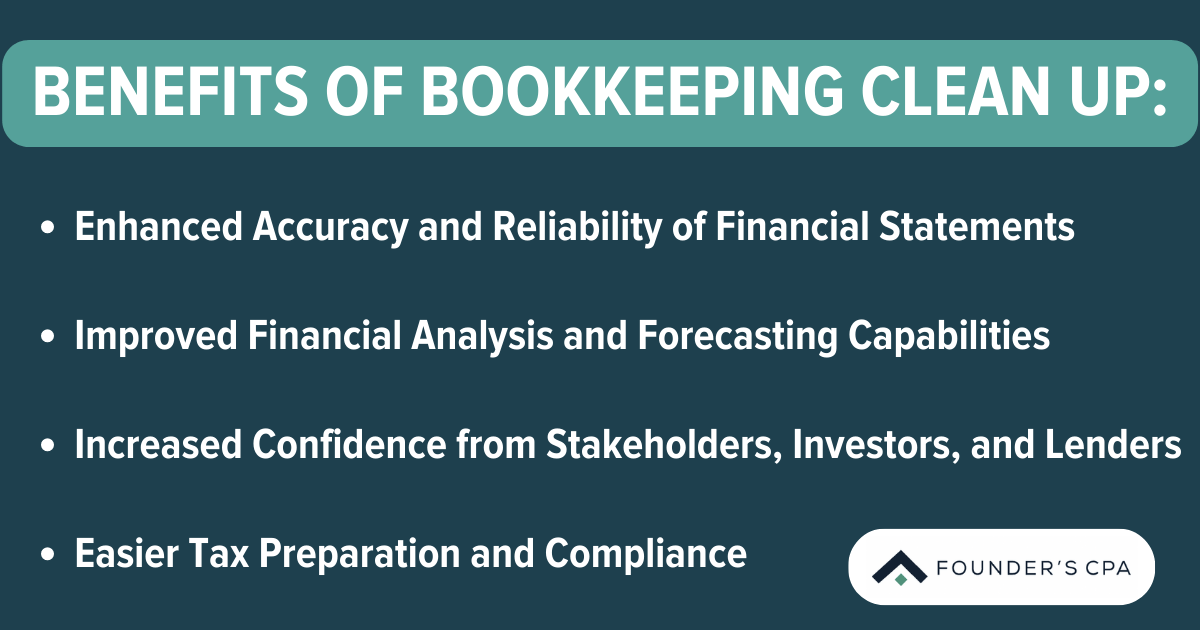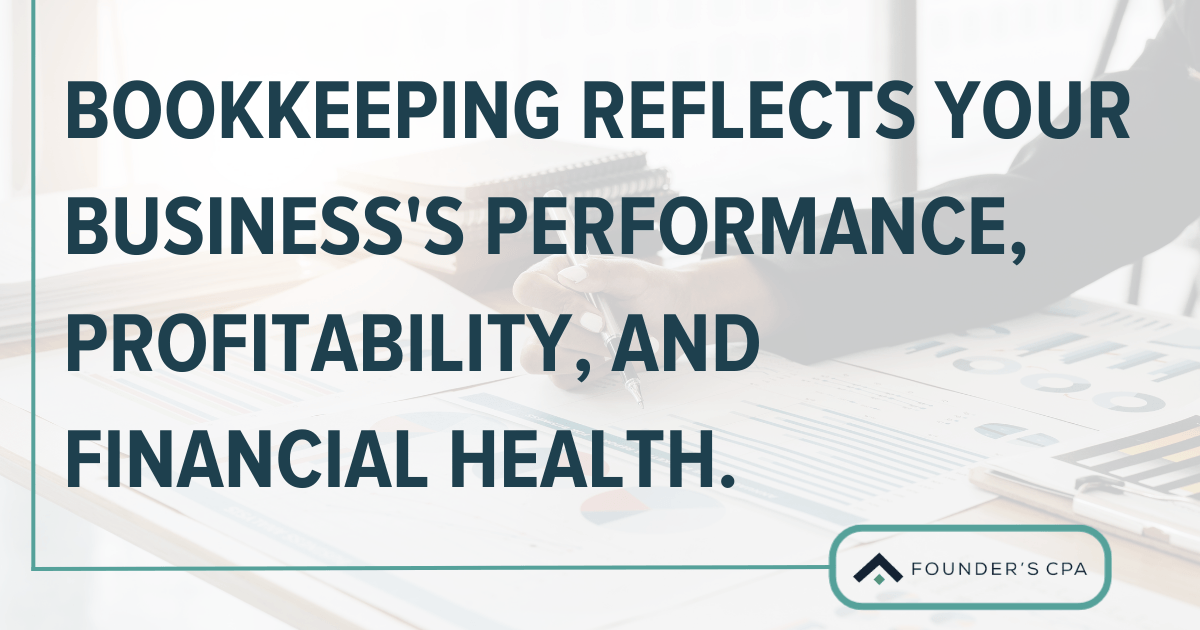What entity type is best for my startup?
A bookkeeping cleanup helps businesses stay on top of their accounting while ensuring accurate and organized financials. This cleanup gives vital stakeholders and potential investors an accurate picture of the business’s:
- Performance
- Profitability
- Financial health
Failing to maintain clean accounts invites bookkeeping issues that may lead to messy and inaccurate financials. These issues include mixing expenses, difficulty assessing profitability, irregular bank reconciliations, and failing to track account receivable and payable.
Would you want inaccurate financial reporting for your business? Of course not! Before presenting financial statements, read on to get insights on the benefits of bookkeeping cleanup.

Understanding the Impact of Bookkeeping on Financial Statements
Bookkeeping serves as the basis for all of your business financial information. Clean and organized bookkeeping helps you keep your accounts in check. It ensures:
- Compliance with government regulations
- Progress tracking of your financial goals
- Budgets that fit your goals
- Accurate financial records
Together, these make monitoring and evaluating your financial position and making informed decisions more straightforward.
On the other hand, a lack of clean and organized bookkeeping results in errors that may lead to increased operational expenses and incorrect financial reports. This may damage a business’ reputation, attract hefty regulatory penalties, and result in poor business and investment decisions and missed tax deductions and credits. It can also make assessing your profitability challenging and defining where to improve accurately.
Signs Your Bookkeeping Needs a Clean Up
Fortunately, a few clear signs indicate when your company’s bookkeeping needs a cleanup. Read on.
Discrepancies Between Bank Statements and Records
Are your books in harmony with your external account balances? Don’t think twice if there are significant discrepancies between your bank statements and accounting records—you need a bookkeeping cleanup.
Unreconciled Accounts and Missing Transactions
Lack of coherence between your bank or credit card statements and difficulty reconciling with your accounting books, cleaning your books will help you identify and rectify any mistakes.
Another sign that your bookkeeping is down is missing transactions that make it difficult to prepare financial reports.
Inconsistent or Incorrect Categorization of Expenses
Expense categorization plays a critical role in clean and accurate financial statements.
Therefore, inconsistently or incorrectly categorized expenses, make it hard to track where your money is going and define areas that need adjustment. Cleaning up your books is the best solution for ensuring payments are correctly and consistently categorized.
Accumulation of Outdated or Irrelevant Data
Especially in the modern digital era, businesses store much data, from business info to employee records and client data.
Over time, irrelevant or outdated data can accumulate. If you need more information or relevant data, consider a bookkeeping cleanup to stay on top of your accounting.
Benefits of Bookkeeping Clean Up
Cleaning up your books makes it easier to manage your financial health and make informed business decisions and projections. Other benefits include:
Enhanced Accuracy and Reliability of Financial Statements
Accurate financial statements are a critical aspect of informed business decisions. Bookkeeping cleanup significantly enhances the accuracy and reliability of your financial statements by:
- Helping businesses reconcile accounts
- Removing ambiguity and outdated data
- Correct discrepancies between bank statements and records
Improved Financial Analysis and Forecasting Capabilities
A business with its financial house in order can better manage its financial resources and costs. Further, analyzing financial performance, profitability, and health becomes easier because you can see a precise image of where the money comes from and goes. It also makes it possible to budget and forecast future financial trends of the business.
Increased Confidence from Stakeholders, Investors, and Lenders
Clean books show that your financial house is in order. They also give stakeholders, investors, and lenders greater confidence in your business owner and manager’s abilities.
Easier Tax Preparation and Compliance
Clean books carry accurate and organized financial information, making preparing for the tax season easy. They also help you and your accountant claim all available tax benefits and correctly file your returns.
Utilizing Accounting Software for Clean Up
Now that you know the benefits of cleaning up your books, there are a few things you can do to make your financial life more manageable. One of the most important is to leverage accounting software as part of a transparent process. Accounting software tools help businesses easily track financial transactions, reporting, and analysis.
Accounting software tools automate the reconciliation and data cleanup processes, helping you generate accurate financial reports from cleaned data. This allows quick access to accounting statements for auditing, projections, and decision-making.

Seek Professional Assistance for a Bookkeeping Clean Up
Bookkeeping reflects your business’s performance, profitability, and financial health. However, discrepancies between your books and bank statements or inconsistently categorized expenses indicate that it’s time to hire a bookkeeper or accountant for cleanup.
Financial professionals deeply understand economic principles, business operations, and government regulations. This makes them ideal for keeping your books clean, accurate and organized for better and more informed decision-making.
But how do you find an exemplary bookkeeping service or accountant? Join the 250+ clients that rely on Founder’s accounting, tax, and CFO services. Contact us today to start cleaning up your bookkeeping.
Aug 17, 2023 3:00:00 AM



.jpg?width=500&height=500&name=Untitled%20design%20(1).jpg)